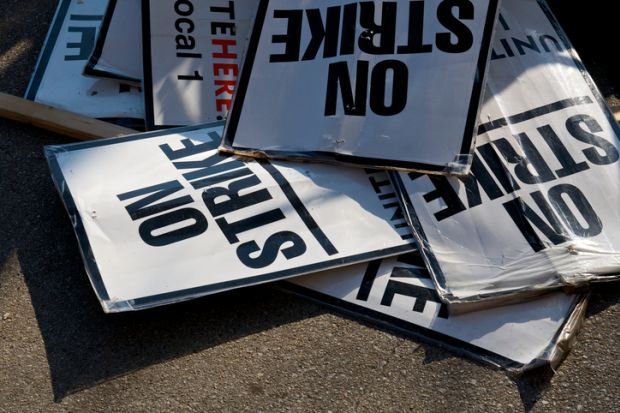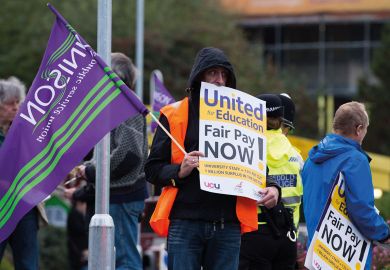The increasingly bitter dispute over university pensions marks a seminal moment for UK higher education that will lead to further demands to tackle casualisation and marketisation in the sector, academics say.
After 14 days of escalating strike action at 65 universities over plans to cut the element of the University Superannuation Scheme that guarantees members a certain level of income in retirement, debate is already widening from pensions to the state of British universities as a whole.
In particular, concern has focused on the use of fixed-term and hourly paid contracts in UK higher education, and universities are likely to face continuing pressure to address this issue, however the pensions dispute is concluded, according to academics.
Catherine Oakley, a postdoctoral research fellow studying work and health at the University of Leeds, highlighted that employees on casual contracts had been hit “particularly hard by the prospect of lost income during strike days”.
“The majority recognise that this dispute is about the erosion of employee rights and working conditions across the sector more broadly,” said Dr Oakley, co-founder of an activist platform called The Academic Precariat. “The attack on pensions is consistent with institutional offloading of risk on to staff through casual contracts.”
In a report released earlier this month, the University and College Union estimated that UK universities used hourly paid lecturers to deliver between 15 and 40 per cent of their teaching, with an average of 27 per cent, although official data are yet to be released.
A 2016 study by the union claimed that more than half of all academic staff at UK higher education institutions were on “insecure” contracts, but these figures were disputed by employers.
Gregor Gall, professor of industrial relations at the University of Bradford, said that it was “common in industrial disputes over one particular issue for other more latent issues to come forcefully to the surface”. Conflict between employers and workers “allows the time and opportunity for reflection and rumination, where with a heightened sense of oppositional consciousness, workers start making links between issues and seeing a ‘bigger picture’”, he said.
“In the case of the USS pensions dispute, the issue that sparked the dispute is seen as emblematic of the lamentable general direction universities are going in, whether it is called marketisation or neoliberalisation,” Professor Gall said. “Here is where the issue of casualisation fits in as, with the ideology and increased competition between institutions, pressure is generated to drive down costs where they can be driven down.
“Those entering the academic workforce and those on its periphery are the softest targets here. Hence the widespread use of casualisation.”
Union leaders are due to announce further strike dates in the dispute over the future of the USS, expected to coincide with institutions’ exam and assessment periods.
This comes after UCU members vetoed a deal struck by employers and union leaders that would have ended the dispute. This would have protected defined benefits for three years, guaranteeing retirees a set level of income, but in return for an increase in contributions.
Jonathan White, bargaining policy and negotiations official at the union, argued that, whatever the outcome, UK higher education would never be the same again.
“I’ve been talking to people at the picket line who have never been on strike before. [They’re] talking about it being a ‘transformative moment’ – a moment after which they will never be able to look at their management again in the same way,” he said.
Sally Hunt, UCU’s general secretary, added: “The genie is out of the bottle now, and universities can choose to work with us or face growing campaigns for job security.”




